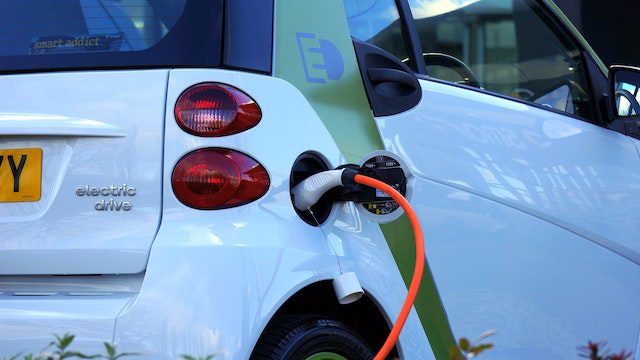Tax Credits for Electric Vehicle (EVs)
Navigating the maze of tax laws has never been for the faint of heart. As a tax attorney with over two decades of experience, I’ve guided countless clients through the labyrinthine twists and turns of IRS guidelines. Over the past few years, one area that has surged to the forefront is electric vehicles (EVs) and the tax incentives that come with them. The arrival of tax credits and rebates for electric cars, hybrids, and their associated technology, such as chargers and batteries, have been met with a mix of excitement and confusion.
Understanding the Electric Car Tax Credit
In this post, we’ll journey together to understand the Electric Vehicle (EV) Tax Credit, decoding the financial opportunities it offers and dispelling some common misconceptions. Let’s take the first step by defining what an electric car tax credit is.
A tax credit is an amount of money that taxpayers can subtract from the taxes they owe to the government. Unlike tax deductions, which reduce the amount of income that’s considered taxable, tax credits reduce the actual amount of tax you owe, dollar-for-dollar. When you purchase an eligible electric vehicle, you can benefit from a tax credit of up to $7,500. However, it’s important to note that not all electric vehicles qualify for the full credit, and the credit amount can vary based on the capacity of the battery used to power the vehicle.
The 2022 Landscape: EV Incentives and the IRS
In 2022, there were numerous changes to the electric car tax credit landscape. Previously, once a manufacturer sold 200,000 qualifying vehicles, the tax credit available to buyers of that manufacturer’s vehicles began to phase out. This created a situation where early adopters received substantial benefits, while latecomers found the perks dwindling or completely exhausted.
However, the Inflation Reduction Act of 2022 introduced modifications that altered the phase-out rule. It replaced the manufacturer-specific cap with a universal cap, effectively leveling the playing field and making the electric car tax credit available to more people.
Plug-In Hybrids and the Hybrid Tax Credit
It’s a common misconception that only fully electric vehicles are eligible for the tax credit. In reality, plug-in hybrid electric vehicles (PHEVs) can also qualify. These are vehicles that can operate on both an internal combustion engine and an electric motor that uses energy stored in a battery.
The amount of credit available for PHEVs can be lower than that for fully electric vehicles, as it’s determined by the battery’s capacity. For instance, a plug-in hybrid with a small battery might only qualify for a $2,500 credit, while one with a larger battery could qualify for the full $7,500.
Into the Future: Electric Vehicle Tax Rebates in 2023
The landscape of EV incentives continues to evolve in 2023, with the introduction of tax rebates for EV charging equipment, also known as electric vehicle supply equipment (EVSE). A tax rebate is a return of part of the amount you’ve already paid for a particular item, in this case, EV charging equipment.
A portion of the Inflation Reduction Act covers tax rebates for EV chargers, allowing EV owners to receive up to a 30% rebate on the cost of purchasing and installing home charging equipment. This rebate is capped at $1,000 for individuals and $30,000 for businesses.
Navigating the EV Tax Credit and Rebates
As we drive deeper into the intricacies of EV incentives, let’s dispel another common belief: that obtaining these incentives is a cumbersome process. The truth is, it’s not as daunting as it might seem.
When you file your federal tax return, you can claim the credit for a qualifying EV or PHEV using IRS Form 8936, “Qualified Plug-in Electric Drive Motor Vehicle Credit.” If you’re claiming the EVSE rebate, you would use IRS Form 8911, “Alternative Fuel Vehicle Refueling Property Credit.”
Battery-Equipped: The Essence of Electric Vehicle Tax Credits
Understanding the true power of tax credits and rebates lies in recognizing the broader picture. These incentives are not just about reducing your tax liability or receiving a chunk of money back. They represent a fundamental shift towards a more sustainable, environmentally friendly mode of transport.
The EV tax credit and the charging equipment rebate reflect the government’s commitment to reducing dependence on fossil fuels and promoting clean energy alternatives. As more consumers adopt electric vehicles, we can expect to see an expansion of these incentives, propelling us towards a cleaner, greener future.
Conclusion: Harnessing the Power of Electric Vehicle Tax Credits
In conclusion, tax credits and rebates for electric vehicles and related equipment are powerful tools for consumers and businesses alike. They’re not only an avenue for significant savings but also a testament to a global shift towards sustainable transportation.
Remember, the EV tax landscape is dynamic, with new regulations and provisions introduced frequently. It’s essential to stay informed about these changes and understand how they might impact your tax obligations and potential savings.
As always, I strongly recommend consulting with a tax professional or advisor to ensure you’re maximizing these benefits and complying with all applicable IRS guidelines. It’s an exciting time in the world of electric vehicles, and I look forward to guiding you further through this electrified landscape of tax incentives.
See more
How to qualify for the full $7500 federal electric vehicle tax credit?
Securing the full $7500 federal electric vehicle tax credit involves meeting specific criteria set by the IRS. First, the vehicle must be brand new, as the credit does not apply to used EVs. Second, the EV must be purchased; leased vehicles are not eligible. Third, the EV should have a battery with at least 4 kilowatt hours (kWh) of capacity, but to qualify for the full $7500, it should typically have 16 kWh or more. Fourth, the EV must be primarily used within the U.S.
Lastly, and importantly, your tax liability must be at least $7500 in the year you purchase the vehicle, as this is a non-refundable tax credit. This means you need to owe at least $7500 in taxes to fully benefit from this credit. It’s also crucial to note that this tax credit starts to phase out once a manufacturer sells 200,000 eligible vehicles, so timing your purchase may be a critical factor. Always consult with a tax professional or advisor to ensure you meet all requirements.
Can I claim EV tax credit if I get a tax refund?
Many individuals wonder if they can claim the Electric Vehicle (EV) tax credit even if they are receiving a tax refund. The answer is complex, but to put it simply: yes, you can, but the tax credit may not necessarily increase your refund. The EV tax credit is non-refundable, meaning it will not add to your refund directly. Instead, it reduces the amount of tax you owe.
To better understand, let’s say you owe $5,000 in taxes, but you’re entitled to a refund of $1,000 due to excess withholding or estimated tax payments. If you purchase a qualifying EV and can claim a $7,500 credit, it will first reduce your $5,000 tax liability to zero. The remaining $2,500 of the credit, however, won’t increase your $1,000 refund to $3,500 because the credit is non-refundable.
So, while the credit can offset the tax you owe, resulting in a larger refund indirectly by reducing your tax liability, it will not provide a refund beyond your tax liability. Always remember to consult with a tax professional to understand how the EV tax credit can impact your specific tax situation.
Do you still get tax credit for electric vehicles?
Yes, as of 2023, tax credits are still available for qualifying electric vehicles under the provisions of Internal Revenue Code Section 30D. Purchasers of new, eligible plug-in electric vehicles can qualify for a federal income tax credit of up to $7,500. The exact amount of the credit can vary depending on the capacity of the vehicle’s battery.
However, it’s important to note that the credit begins to phase out once a manufacturer sells 200,000 eligible vehicles, so availability can depend on the timing of your purchase and the particular vehicle brand. As the landscape of EV incentives continues to evolve, keeping abreast of the latest changes is critical to maximize your potential savings. Always consult with a tax professional or advisor to navigate these incentives efficiently and accurately.
Is the $7500 EV tax credit?
The $7500 EV tax credit is a federal incentive for new electric vehicle (EV) purchases under the U.S. tax law, specifically the Internal Revenue Code Section 30D. This credit, designed to encourage the adoption of cleaner, greener transportation, can provide a maximum credit of up to $7500 for qualifying new EV purchases.
The credit amount varies based on the capacity of the vehicle’s battery, with the full credit generally applying to vehicles with a battery capacity of 16 kWh or more. Importantly, this credit is non-refundable, meaning it can reduce your tax liability to zero, but any excess credit amount does not result in a tax refund.
Although recent amendments under the Inflation Reduction Act did introduce provisions for used EVs, the maximum credit for new EVs remains up to $7500. Each taxpayer can claim only one credit per vehicle, and the credit begins to phase out once a manufacturer sells 200,000 eligible vehicles. Always consult a tax professional to understand how to claim and maximize this valuable incentive.
How to claim $7500 EV tax credit?
Claiming the $7500 Electric Vehicle (EV) tax credit involves several specific steps. First, ensure your vehicle is eligible for the credit. It must be a new, qualifying plug-in EV that meets the battery capacity criteria set by the IRS. The EV should be primarily used within the U.S., and leased vehicles are not eligible for the credit.
To claim the credit, you need to file IRS Form 8936, “Qualified Plug-In Electric Drive Motor Vehicle Credit,” with your tax return. This form requires specific details about your vehicle, including its make, model, and Vehicle Identification Number (VIN).
Remember, the EV tax credit can be claimed only once per vehicle at the time of purchase. Your tax liability must be at least $7500 in the year you purchase the vehicle, as this is a non-refundable tax credit.
Navigating tax incentives can be complex, so it’s always advisable to consult a tax professional or advisor to ensure you’re accurately claiming the EV tax credit and fully benefiting from this incentive.







